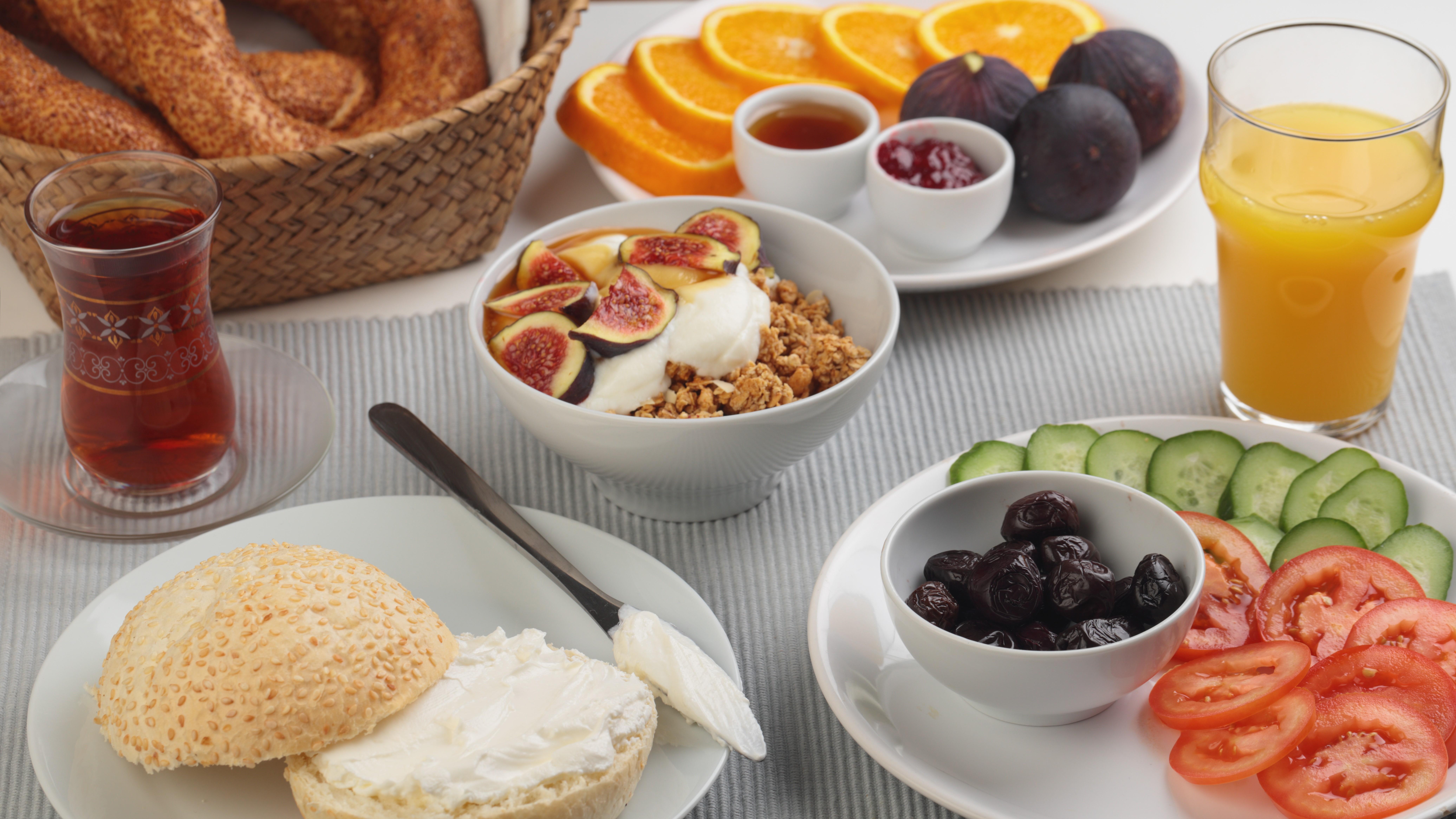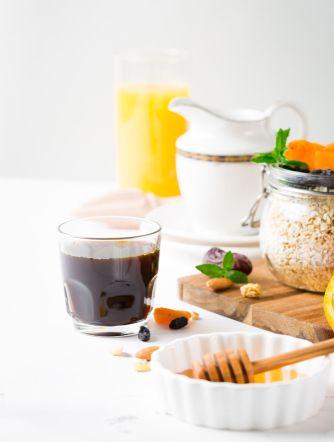
Two meals are eaten during Ramadan, called Suhur and Iftar. Suhur is eaten at sunrise, and Iftar is eaten after sunset.
Knowing what to eat at Suhur is an important part of your preparation for Ramadan. If you’re looking for inspiration for nutritious and fulfilling Ramadan foods to eat this year to sustain you through your fast, we’ve put together a few ideas for your Suhur meals.
Before we explore good Suhur foods to eat, it’s important to understand what Suhur is, as this has a great bearing on the types of food you should aim to eat. Suhur is the meal that is eaten early in the morning before the sun rises. As it’s a morning meal, it’s comparable to a traditional breakfast and is the meal that will sustain you throughout the day ahead.
There is no set time for Suhur as it depends on the time of year Ramadan falls. In the winter months, when the days are shorter, Suhur may fall at the same time of day as a normal breakfast, but if Ramadan occurs during summer when there are longer sunlight hours, then it may fall very early in the morning, for example at 4 am or just after.
If Iftar falls late at night due to a late sunset, it can be tempting for Muslims to skip Suhur because they may be full or would prefer to sleep, but this isn’t advised. The reason for this is that much like breakfast, Suhur sustains you throughout the day and gives you the nutrients you need to make it through your fast until Iftar in the evening.
This is why it’s important to eat the right foods. If you’re wondering what those might be, here are some good examples of what you can eat for Suhur in Ramadan.
Carbs are a staple of Suhur meals and will provide you with a healthy foundation to go about your day, but it’s important that you eat good carbs to ensure you feel fuller for longer and that your body is being nourished in a healthy way. Oats are a prime example of good carbs because they are not only filling, but they also contain lots of fibre to aid digestion and protein to help you feel energised throughout the day.
A bowl of oats for Suhur is a great option, especially when paired with things like honey, fruits, and nuts for added sustenance.

We all know that fruit is an essential part of a healthy diet, and that remains the same during Ramadan. You won’t be able to snack whilst fasting, so it may be harder for you to get your five a day in at this time of the year. With this in mind, it’s a good idea to eat plenty of fruit with your breakfast. Blueberries, apples, mango, and bananas are good options. You could eat them alone as part of a fruit salad, or you can sprinkle them on top of cereal, toast, or yoghurt.
Every good diet needs calcium, and there are few better sources of calcium than yoghurt. Greek yoghurt is a good Suhur food because it has lots of carbs and calcium, and it’s a somewhat lighter option for early in the morning compared to cooking something heavier. If you’re struggling to get something in for Suhur due to not feeling hungry, try a bowl of yoghurt with some fruit and a handful of oats.
If you feel up to it and want something a bit more filling for your Suhur meal, eggs are a great option. They are packed full of protein which will provide a favourable base for the rest of the day, and they can be cooked any way you like! Poached eggs are the healthiest option and go well with bread and avocado, but if you want to keep the savoury foods to a minimum to prevent added thirst throughout the day, you can boil them and eat them on their own.
Ideally, during Suhur, you’ll aim to eat a range of different foods that target lots of different food groups, but bread is a good staple. It can be eaten as plain toast, with a nutty spread for added protein, with fruit on top, under an egg, or with anything else you like. It’s a good idea to try and skimp on the savoury toppings like salty butter as this can make you thirsty later on in the day, but sweeter spreads like honey are a good option and will give you a much-needed energy boost.
Nuts are one of the healthiest foods, but they are also one of the most filling. They are chock-a-block with iron, fibre, and protein, and they can easily be sprinkled on top of yoghurt and cereal or eaten as they are if you’d prefer. Even just a handful of nuts will leave you feeling full and satisfied, so try and work things like almonds, cashews, pistachios, and pecans into your Suhur meal to squash those feelings of hunger later in the day.
These are just some of the foods you can work into your Suhur meal this Ramadan to help sustain you and keep you healthy whilst you fast. If you want to learn more about fasting for Ramadan, please read our information guide on Sawm.